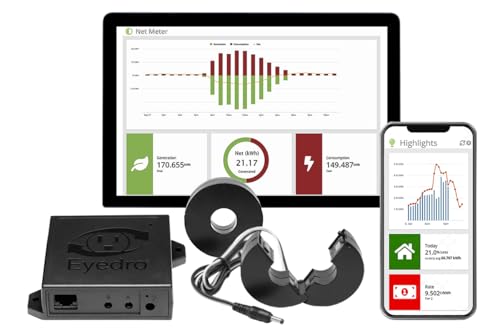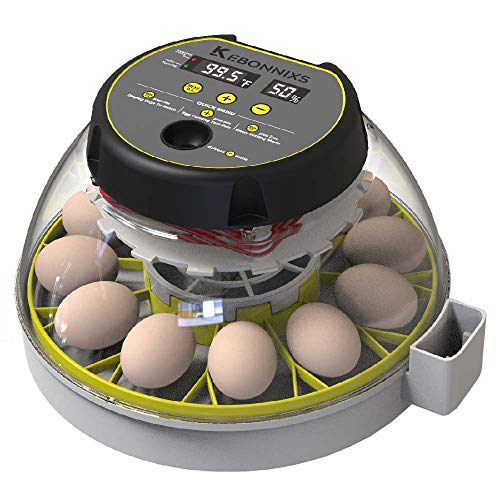Electricity consumption is an important consideration when it comes to using kitchen appliances. Many people wonder whether using a grill or a toaster consumes more electricity. The answer to this question depends on several factors, including the type and model of the appliances, as well as how they are used.
Grills and toasters are both popular kitchen appliances used for cooking and heating food. While both consume electricity, the amount of energy they use varies based on their wattage and usage patterns. Understanding the electricity consumption of these appliances can help consumers make informed decisions about their energy usage and costs.
The Impact of Electricity Usage on Grills and Toasters
Electricity usage is an important consideration when comparing appliances like grills and toasters. Both grills and toasters consume electricity, but the impact of their usage differs based on various factors.
When comparing the electricity usage of grills and toasters, it’s essential to consider their wattage, usage frequency, and cooking time. Grills generally have higher wattage compared to toasters, which means they consume more electricity per hour of operation. If you use a grill frequently and for extended periods, it can have a higher overall impact on electricity usage compared to a toaster.
On the other hand, toasters typically have lower wattage and are used for shorter durations, resulting in lower electricity consumption. However, if you use a toaster more frequently throughout the day, the cumulative impact on electricity usage may increase.
Comparison of Power Consumption
When it comes to power consumption, a toaster generally uses more electricity than a grill. The average toaster uses around 800-1500 watts of power, while a grill typically uses approximately 1200-1800 watts. This means that a toaster consumes more energy per usage compared to a grill.
However, it’s important to note that the actual power consumption depends on various factors such as the size and model of the appliance, as well as the duration and frequency of use. In addition, other factors such as insulation and the type of heating element can also affect energy consumption.
It’s always a good idea to check the energy efficiency rating of appliances and consider using them in a way that minimizes energy usage and waste.
| Appliance | Power Consumption (watts) |
|---|---|
| Toaster | 800-1500 |
| Grill | 1200-1800 |
Factors Affecting Energy Consumption
Several factors can affect the energy consumption of appliances like grills and toasters. Understanding these factors can help consumers make informed choices about their energy usage and expenses.
1. Power Rating
The power rating of an appliance is a critical factor affecting its energy consumption. Appliances with higher power ratings tend to consume more electricity, while those with lower power ratings consume less. It’s important to consider the power rating when choosing between different models of the same type of appliance.
2. Usage Frequency
The frequency with which an appliance is used also affects its energy consumption. Appliances that are used more frequently will contribute more to the overall energy consumption. Understanding how often you use your appliances can help you make decisions about energy usage and potentially reduce your electricity bills.
By considering these factors, consumers can make more informed decisions about their energy usage and choose appliances that align with their energy consumption goals.
Efficiency in Energy Usage
When it comes to energy usage, it’s important to consider the efficiency of the appliances we use. Efficiency is the ratio of useful energy output to total energy input, and it’s a key factor to consider when comparing the electricity usage of different appliances.
Appliances like grills and toasters vary in their energy efficiency. For example, a toaster is generally more energy efficient than a large grill. This is because a toaster is designed to quickly convert electricity into heat to toast bread, while a grill often requires more energy to reach and maintain a high cooking temperature.
Energy-efficient appliances not only help reduce electricity bills, but they also have a positive impact on the environment by reducing overall energy consumption. When choosing appliances, it’s important to consider their energy efficiency to make informed decisions about electricity usage.
Environmental Impact and Sustainability
When considering the environmental impact and sustainability of using a grill or toaster, it is important to factor in the amount of electricity each appliance uses. While both the grill and toaster contribute to energy consumption and have an environmental impact, the amount of electricity they use differs significantly.
A toaster typically uses between 800 and 1500 watts of electricity, while a standard grill can use anywhere from 1200 to 1800 watts. This means that, on average, the grill uses more electricity than a toaster. However, the actual environmental impact and sustainability of using these appliances depends on how often they are used, the type of energy source they are connected to, and the overall energy efficiency of the appliances.
For example, if a person uses the toaster multiple times a day for short durations, it could potentially consume more electricity over time than occasional use of a grill for longer periods. Additionally, if the energy source for these appliances comes from a renewable and sustainable source such as solar or wind power, their environmental impact can be significantly reduced.
Furthermore, energy efficiency ratings and proper maintenance of the appliances can also impact their environmental footprint. Choosing energy-efficient models and ensuring they are well-maintained can contribute to reducing their overall environmental impact and promoting sustainability.
| Factors | Grill | Toaster |
|---|---|---|
| Electricity Usage (watts) | 1200-1800 | 800-1500 |
| Environmental Impact | Dependent on energy source and usage frequency | Dependent on energy source and usage frequency |
| Sustainability | Dependent on energy efficiency and maintenance | Dependent on energy efficiency and maintenance |
Ultimately, to minimize the environmental impact and promote sustainability, it is essential to consider not only the electricity consumption of the appliances but also other factors such as frequency of use, energy source, energy efficiency, and maintenance.
Practical Considerations for Home Use
When it comes to practical considerations for home use, it’s important to take into account your daily habits and needs. If you frequently use a toaster for making breakfast and a grill for cooking lunch and dinner, it’s worth considering the energy usage of each appliance. Additionally, the size and power of the toaster and grill can also impact their electricity consumption. Consider your cooking patterns and the size of the meals you typically prepare to determine which appliance is more energy-efficient for your specific needs.
Another factor to consider is the efficiency of the appliances. Some newer models of toasters and grills are designed to be more energy-efficient, which can reduce their overall electricity consumption. It’s important to research and compare different models to find the most energy-efficient option for your home.
Cost Analysis of Electricity Usage
When comparing the cost of electricity usage between a grill and a toaster, it is important to consider the wattage of each appliance. Calculating the cost of electricity usage involves multiplying the wattage of the appliance by the number of hours it is used, then dividing by 1000 to get the kilowatt-hour (kWh) usage.
For example, if the grill has a wattage of 1500W and is used for 1 hour, the electricity consumption would be 1.5 kWh. Similarly, if the toaster has a wattage of 800W and is used for 1 hour, the electricity consumption would be 0.8 kWh.
By multiplying the kWh usage by the cost per kWh charged by your utility company, you can calculate the cost of electricity usage for each appliance. Keep in mind that the cost per kWh can vary based on your location and your utility provider.
So, ultimately, the cost of electricity usage will depend on the wattage of the appliance and the duration it is used, making it possible to compare the cost of using a grill or a toaster and choose the more energy-efficient option.
Tips for Energy-Efficient Cooking
Here are some tips for energy-efficient cooking that can help you save electricity and reduce your energy bills:
- Use the right-sized cookware for your stove burners. Using small pots on large burners wastes energy, while using oversized pots can take longer to heat up and cook food.
- Cover pots and pans with lids while cooking to retain heat and reduce cooking time. This can help you use less energy.
- Use your microwave or toaster oven for small meals or heating up food. These appliances use less energy than a full-sized oven.
- Keep your oven clean. A build-up of food debris can make your oven less efficient and can increase cooking times.
- Preheat your oven only when necessary. Many dishes don’t require preheating, so check the recipe to see if you can skip this step and save energy.
By following these simple tips, you can cook more efficiently and reduce your energy consumption.
Q&A (Questions and Answers)
Does using a toaster consume more electricity than using a grill?
The energy consumption of a toaster and a grill can vary depending on the specific models and how they are used. Generally, a toaster uses less electricity than a grill because it is designed to quickly heat up bread or other similar items. Grills, on the other hand, typically require more energy to heat up and maintain a constant high temperature for cooking meats and other foods. However, it’s important to note that the actual electricity usage will depend on factors like the wattage of the appliances and the length of time they are used.
What are the factors that contribute to the electricity consumption of a grill or toaster?
The electricity consumption of a grill or toaster can be affected by several factors. For a grill, the size and type of the grill, as well as the temperature control features, can influence how much electricity it uses. Similarly, a toaster’s wattage, the number of slices of bread toasted, and the toasting duration will impact its energy consumption. Additionally, the frequency of use and the electricity rates in your location should be considered when evaluating the overall consumption of these appliances.
Are there any tips to reduce the electricity usage of a grill or toaster?
Yes, there are several ways to minimize the electricity usage of a grill or toaster. For a grill, preheating for the appropriate amount of time, using lids to trap heat, and not opening the grill frequently can help conserve energy. As for a toaster, selecting the appropriate settings, toasting multiple slices at once, and not running the toaster longer than necessary can reduce electricity consumption. Additionally, cleaning and maintaining these appliances can ensure they operate efficiently and consume less energy over time.







